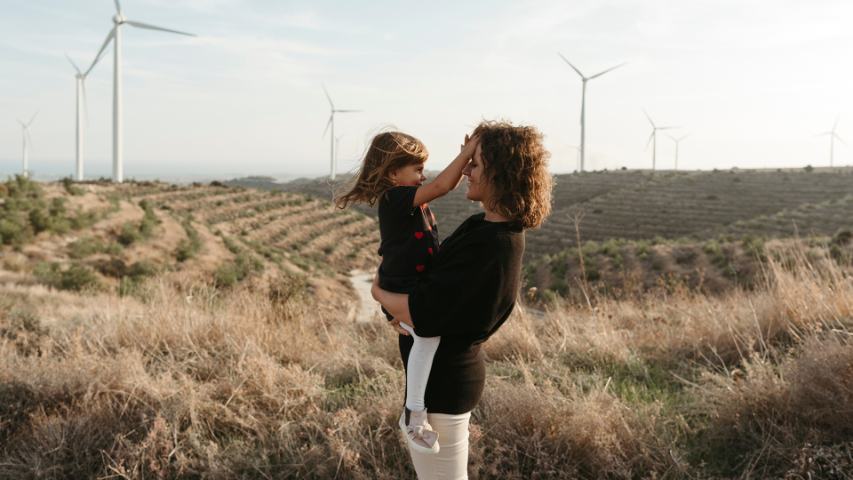We’ve created a comprehensive guide to help you understand some of the responsible investing terms you might come across in our materials
| Responsible investment | Responsible investment is the consideration of environmental, social and governance (ESG) factors when making investment decisions. This helps minimise associated investment risks, while also identifying opportunities to help grow your savings over the long-term. |
|---|---|
| ESG | ESG stands for environmental, social and governance. How companies choose to respond to ESG issues, such as climate change, diversity and inclusion and human rights, could ultimately influence investment returns and the ability of your pension to provide a reliable income for you in retirement.
|
Carbon footprint |
The amount of carbon dioxide released into the atmosphere as a result of the activities of a particular individual, organisation or community. In the case of your pension, it is the level of collective greenhouse gas emissions generated by the companies in which your pension scheme invests and measures how many tonnes of emissions are being financed per £1 million invested. |
|---|---|
Climate change |
Climate change refers to the large-scale, long-term changes to weather patterns, largely caused by human actions. Signs of climate change include rising temperatures and more extreme weather, such as floods, heatwaves and storms. |
Climate roadmap |
A climate roadmap typically outlines strategies and actions to address climate change, aiming for significant reductions in greenhouse gas emissions and enhancing resilience to climate impacts. |
Climate solutions |
Investments that directly contribute to climate change mitigation and/or adaption, such as investment in renewable energy. |
Decarbonisation |
Decarbonisation is the act of reducing the amount of ‘greenhouse gases’ like carbon dioxide or methane, produced through manufacturing, farming or industry that enter the atmosphere. For example, replacing coal and gas with wind and solar power or improving energy efficiency. |
Just transition |
‘Greening’ the economy in a way that’s as fair and inclusive as possible to everyone, creating decent work opportunities and leaving no one behind. |
Net-zero greenhouse gas (GHG) emissions |
Achieving net zero greenhouse gas emissions means balancing the amount of greenhouse gases emitted with an equivalent amount removed from the atmosphere. |
Scope 1, Scope 2 and Scope 3 greenhouse gas (GHG) emissions |
Scope 1 emissions are direct GHG emissions that arise from sources owned or controlled by a reporting company. Scope 2 emissions are indirect GHG emissions from the generation of purchased or acquired electricity, steam, heating or cooling consumed by a reporting company. Scope 3 emissions include all other indirect GHG emissions not included in Scope 2 that arise in the value chain of a reporting company. Scope 3 emissions are typically more material than Scope 1 and 2. |
Transition risks |
Political, legal, technological, market-related and reputational risks coming from the transition to a low-carbon economy. |
Engagement |
Purposeful, targeted communication (for example, with a fund manager, company, government, industry body or regulator) on particular matters of concern, aiming to encourage change, or address a systemic risk such as climate change. |
|---|---|
Fiduciary duty |
How we take care of our customers’ money by considering all long-term investment value drivers in the investment decision-making process, including environmental, social and governance (ESG) factors. |
Greenwashing |
This is when a company misleads its customers by exaggerating or inaccurately representing its environmental, social or governance credentials. This can be anything from false claims, lack of full disclosure or cherry-picking information in marketing and PR campaigns. |
Stewardship |
The responsible allocation, management and oversight of capital to create long-term value for clients and beneficiaries, leading to sustainable benefits for the economy, the environment and society. |
UK Stewardship Code |
A voluntary code for UK asset owners, fund managers and service providers. The Code includes a set of 12 principles that sets high standards for responsible investment, on behalf of UK savers and pensioners. |
| ESG screens | ESG screens exclude investments based on set criteria such as exposure to weapons, tobacco, UN Global Compact violators, thermal coal, oil sands or gambling. |
|---|---|
| ESG tilts | ESG tilts favour investments in companies with high ESG scores and reduce exposure to companies with low ESG scores. For example, ESG tilts may reduce the carbon footprint of a portfolio by decreasing exposure to carbon-intensive companies and favouring carbon-efficient or low-carbon assets. |
| Impact investing | Impact funds invest in companies and projects that actively aim to deliver a measurable social or environmental impact alongside a financial return. |
| Thematic investing | Thematic investing focuses on specific investment themes, such as climate change, sustainable agriculture, water, healthcare or gender equality. For example, a sustainable water fund will invest in companies that address the challenges related to the supply, quality and allocation of clean water. |
Remember that the value of an investment can fall as well as rise and isn’t guaranteed. The value when you come to take benefits may be less than has been paid in. The consideration of ESG factors doesn’t guarantee enhanced returns.
Find out more
Find out more about responsible investment and our approach.


